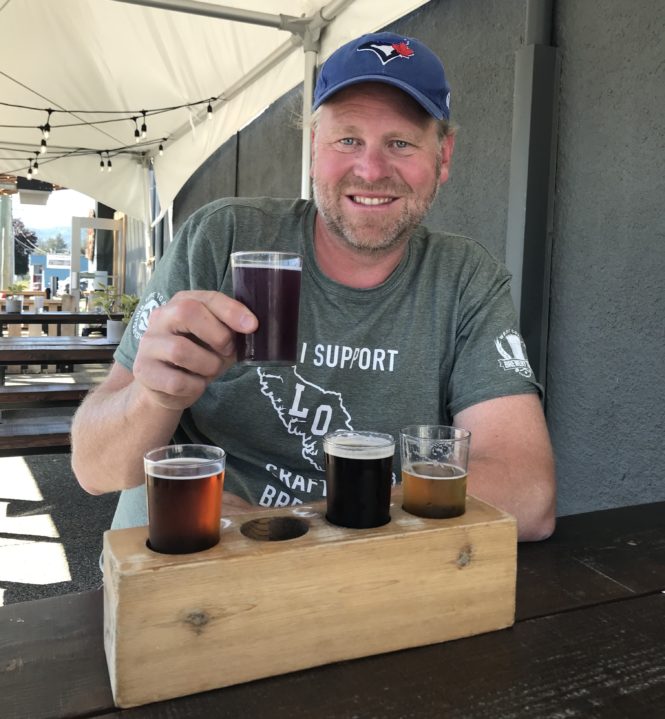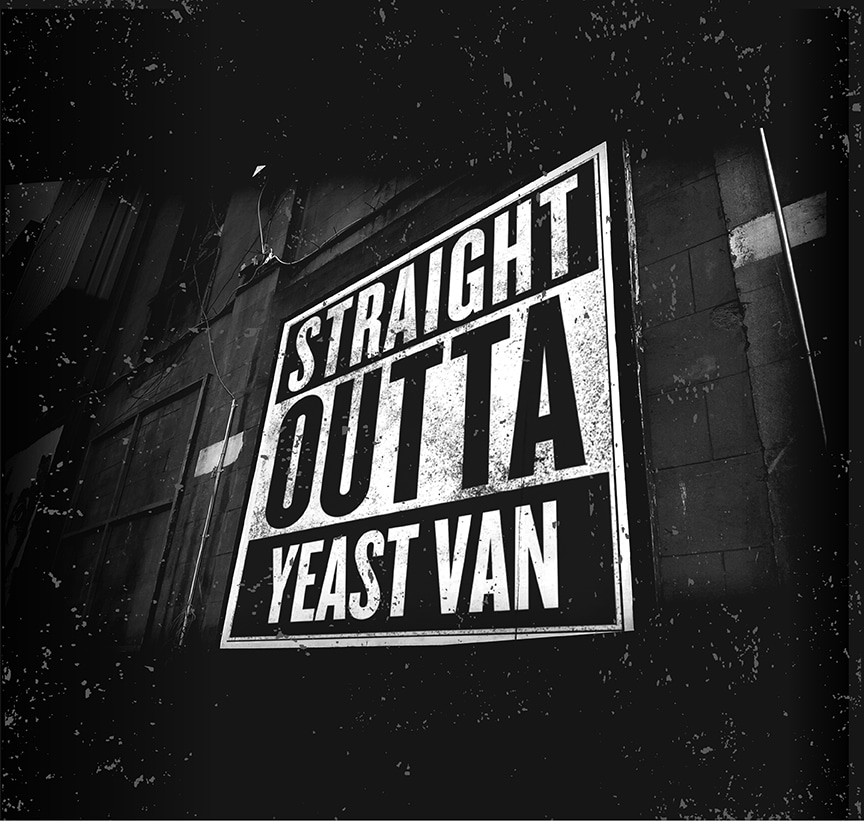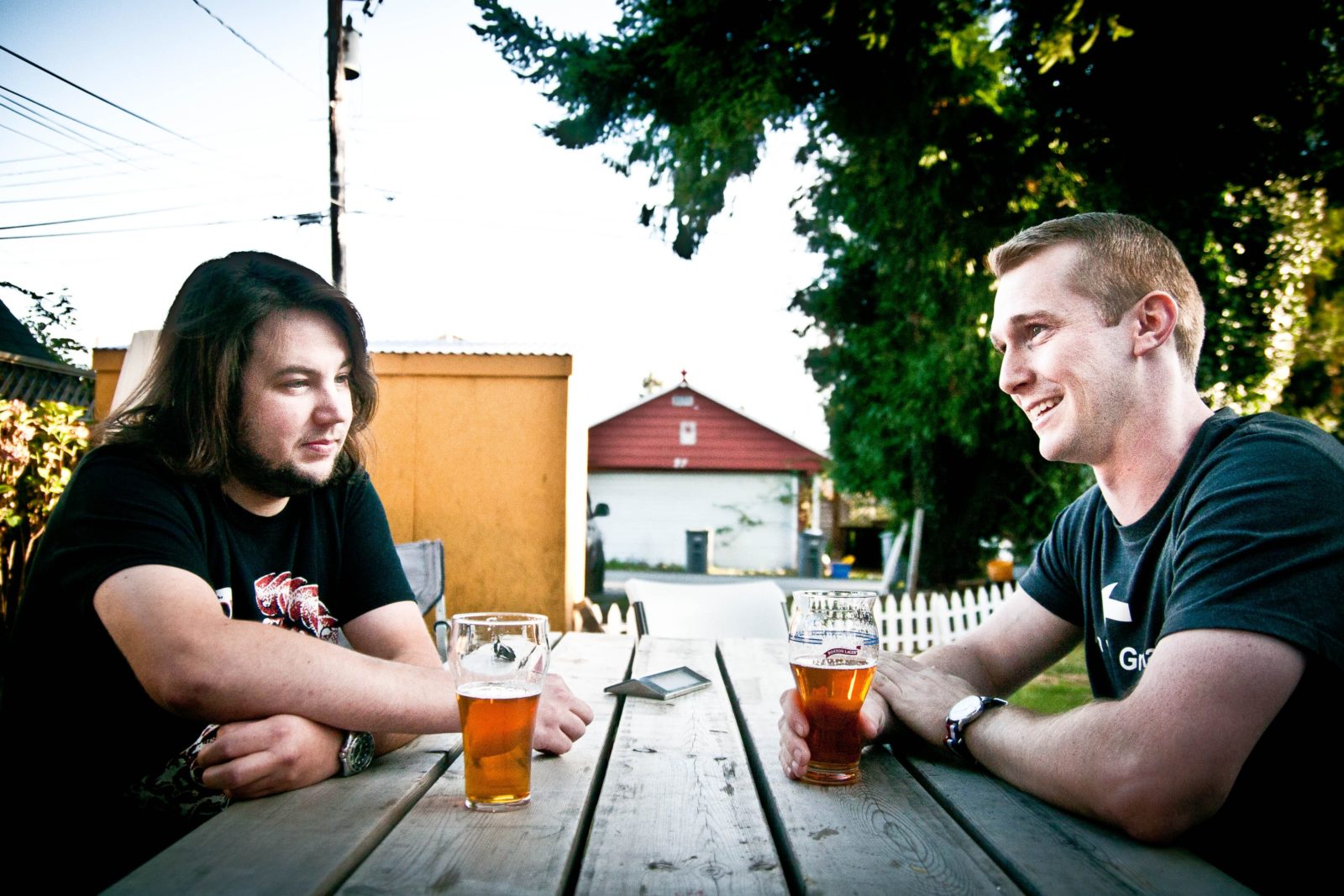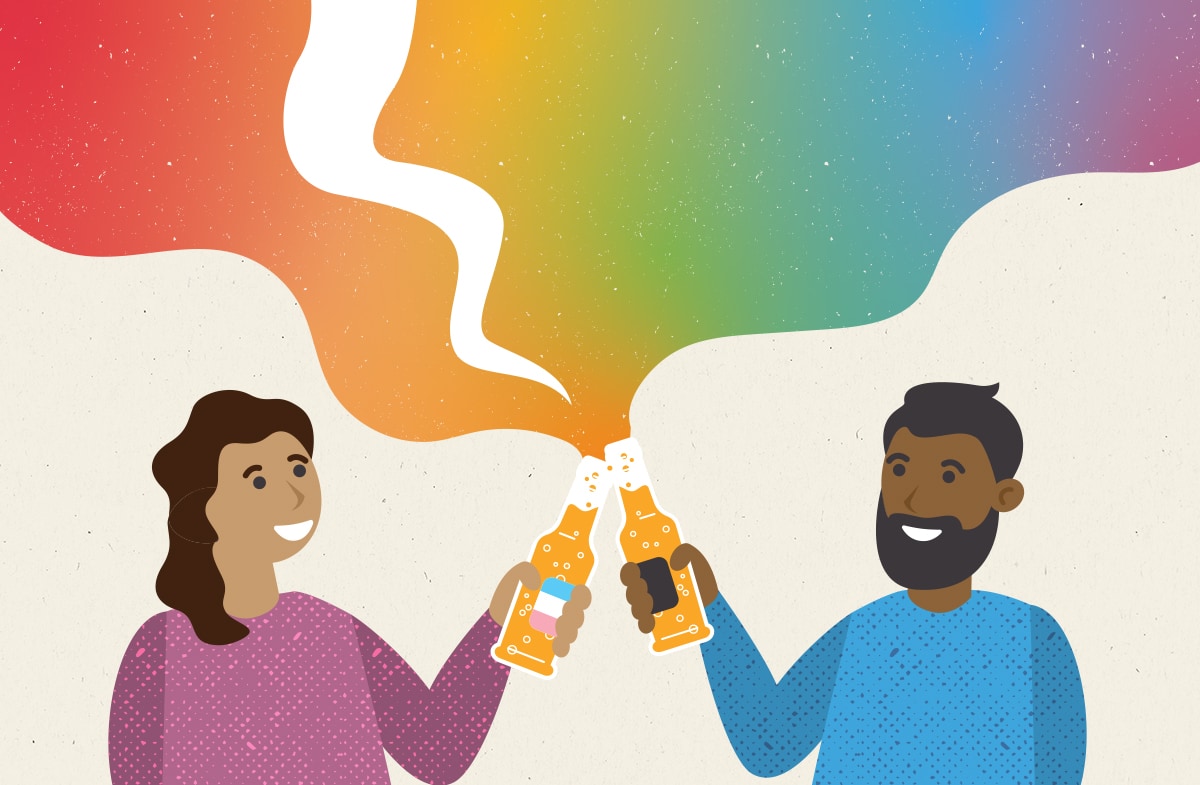
The craft beer industry in British Columbia is dominated by a homogenous group of white males. That undeniable fact has been true since the earliest days of the microbrewing movement, with only a few exceptions. Certainly, one can argue that more and more women have become involved in the beer world over the past decade, but there is a long way yet to go in terms of welcoming Black, Indigenous, and People of Colour (BIPOC) to the industry, as well as folks who identify as lesbian, gay, bisexual, transgender, or queer (LGBTQ+).
In the midst of the Black Lives Matter protests that caught the world’s attention last summer, some B.C. breweries showed their support by posting black squares on their social media platforms. But even before Blackout Tuesday (June 2, 2020), a small group of people had already started working together to launch the Diversity in Brewing initiative (DIB).
Heather Keegan, a longtime employee at Storm Brewing, said she initially proposed the idea of a scholarship to James Walton, Storm’s owner. “But then I realized something like this would be more meaningful, and more impactful, as a collective effort not centered on one business.”
Keegan reached out to three other members of the beer community, Meghan Fulton, Bruce Gill, and Dan Lee, “whom I really respect and whose voices need to be shared and heard across the industry.” They shaped the DIB initiative together, with Keegan acting as coordinator. In addition to launching a website that includes a blog where their stories and those of other diverse members of the beer community are published, they worked with Kwantlen Polytechnic University to create a scholarship for students in the Brewing and Brewery Operations program.
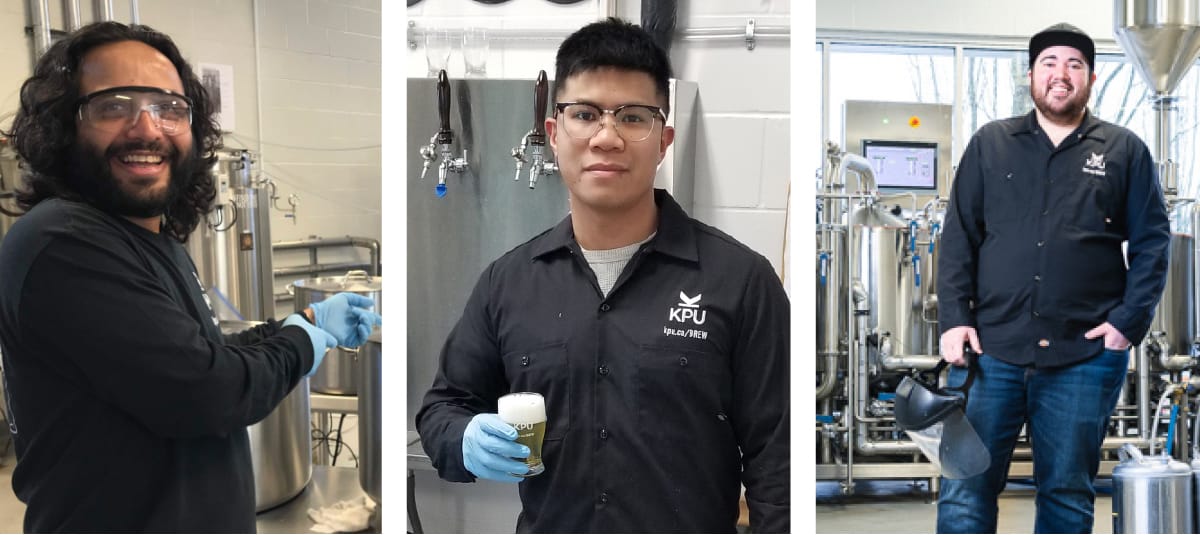
(l to r). Supplied photos
Breweries were asked to donate $200 or more. DIB hoped to offer a $5,000 scholarship to one student in the 2020-21 school year, but so many breweries donated that three $5,000 awards were given out. The first recipients were announced by KPU last fall: Nishant Amin, Jasper Bautista, and Alex Paul.
For Nishant Amin, the scholarship reinforced his choice to come to Canada from India to “fulfil my dream of being a brewer.” Jasper Bautista hopes to own his own microbrewery one day, a unique place that serves tapas along with craft beer: “I want to shift the culture and target the hip hop and basketball community.” And to Alex Paul, “The value of the scholarship far exceeds the monetary award I was given. Just the effect on the beer community of having a scholarship that embraces diversity from the LBGTQ+ and BIPOC communities is huge.”
While the scholarship was a great success story, the DIB team acknowledges that more needs to be done. “Donating money is awesome. It’s made a significant difference in these students’ lives and it shows the industry is willing to support diversity,” Keegan said. “However, our hope is that every brewery that donates sees this as just one way they can help, and are taking other steps as well.”
In the past year two B.C. breweries were called out for mistreatment of employees. Numerous anonymous posts published on the NotOurP49 Instagram account beginning in July, 2020, detailed allegations of racist, transphobic, sexist, homophobic, and misogynistic behavior by owners and managers at Vancouver’s Parallel 49 Brewing. The brewery’s response read, “As owners, we take full responsibility and will make no excuses,” and listed several steps they intended to take, including hiring an HR professional, and introducing sensitivity and management training.
In June 2020, Backcountry Brewing in Squamish also faced criticism from an ex-employee. The brewery responded with a detailed Instagram post on January 26, 2021, that stated, “We failed to protect our employees, and we failed to uphold Backcountry’s values as an inclusive workplace.” The post went on to detail the company’s equity, diversity and inclusion (EDI) initiatives.
To help breweries that want to make changes, the Canadian Craft Brewers Association (CCBA) has formed an Inclusion and Anti-Discrimination Committee, which published a list of resources on its website. The Diversity in Brewing website also includes a Resources page with suggestions that include posting prominent signage welcoming diverse and LGBTQ+ people, and explicitly stating in job postings that applicants from BIPOC and LGBTQ+ communities are encouraged to apply. This might mean reaching out to potential employees in non-traditional ways, too.
For example, when Persephone Brewing was hiring a new CEO in February 2019, co-owner Brian Smith posted a message online that read, “Of the first 15 applications for the posting of CEO at Persephone, none are women.” That led to what Smith described as “a great response from a number of really strong female candidates.”
Persephone eventually hired Jenn Vervier, formerly of New Belgium Brewing. “Unfortunately, as COVID-19 set in, she decided to return to the U.S. where her children are based,” Smith explained. Vervier joined Persephone’s Board of Directors with Smith resuming CEO duties during the pandemic. He insisted that hiring Vervier “was an extremely positive experience and I would do it again in a heartbeat.” Persephone has also published a Statement on Inclusivity in Hiring on its website, updated its House Rules to include an inclusivity statement, and painted an indigenous territory acknowledgement prominently in its tasting room.
While there is still a lot to be done to improve diversity in the brewing industry, Keegan is optimistic. “I always hope that people really want to do better,” she said, adding, “change doesn’t happen overnight and there’s a long way to go but each action and effort we make today can contribute to a brighter future for everyone.”
This story originally appeared in the Spring/Summer 2021 issue of The Growler, out now! You can find B.C.’s favourite craft beer and cider guide at your local brewery, cidery, select private liquor stores, and by subscription here.

